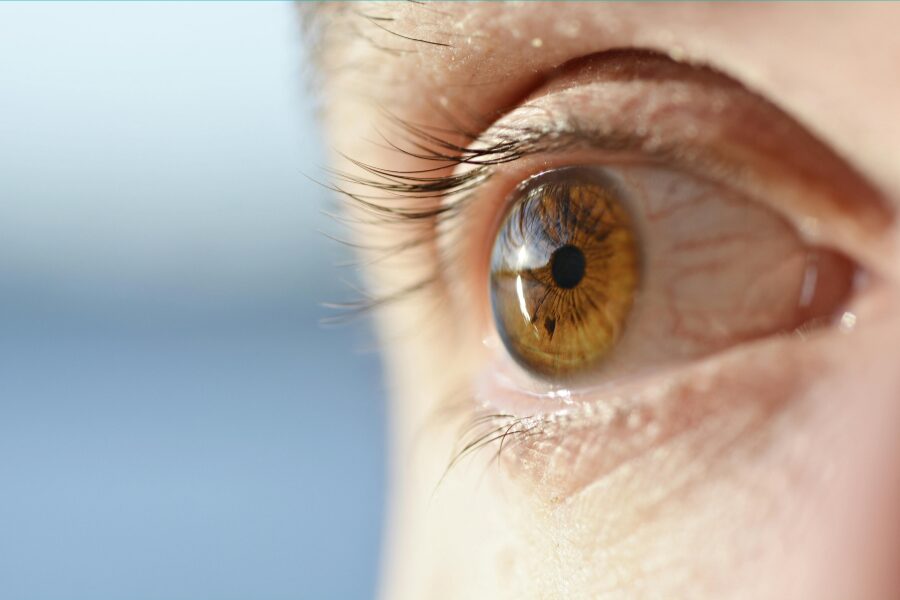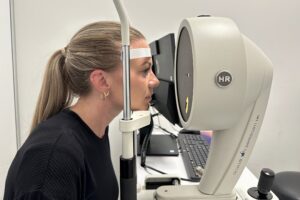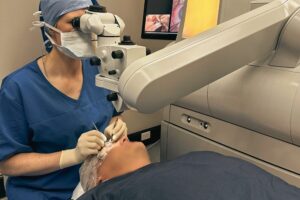Moments of clarity
We are sometimes asked if blinking will be an issue during an eye exam or procedure – and it’s an especially common question for those looking at undergoing laser surgery.
The short and simple answer is no – patients don’t need to worry about blinking. We use a small metal speculum to separate the eyelids for surgery and eyelashes are gently taped out of the way during the procedure. Anaesthetic eye drops numb the eye, and it is then kept hydrated using a saline solution.
While this might all sound uncomfortable, the surgery takes only a few minutes, and most people find it easy to manage.
It might sound odd, but we encourage patients to follow their urge to blink during the surgery rather than trying to repress it. Blinking will not interfere with the process – and holding it back can cause undue stress. It is therefore important patients stay comfortable during this time. A happy and stress-free patient is the primary aim of our team.
Why is blinking important?
We have our eyes closed for approximately 10% of our waking hours due to the need to keep our corneas clean and free from debris. There’s a careful balance to achieve here. Too much blinking and our vision is impaired. Not enough and we can cause damage to the eye.
Blinking has also been found to improve the quality of vision. When the two muscles on the eyelid work to make you blink the eye rotates upwards, which lessens the level of stimulation on the retina. While an instantaneous movement, this break in stimulation has been found to improve eyesight clarity for a moment after, as the retina is able to take in more light. This might be why people tend to blink a lot when they see something unexpected.
What can blink rates tell us?
While we may not be conscious of doing so, blinking is used as a subtle communication device for social cues.
One study measured the responses of speakers interacting with a virtual listener, whose blink rates and length changed as they spoke. They found that the speaker would shorten their speeches in response to long listener blinks, which were taken to mean the listener had received enough information, while they would talk for longer if the listener committed a series of short blinks.
People tend to blink more when they are frightened or highly stimulated.

That’s not the only time rapid blinking provides further insight. People tend to blink more when they are frightened or highly stimulated (such as when watching a horror movie) while they will blink less when relaxed and amused.
Eye movements and blinking can also point to other symptoms. Blinking can be slower in those with Parkinson’s disease, which involves a reduction in this essential chemical in the brain. Rapid blinking has also been identified as a symptom of Alzheimer’s disease, due to the mental effort required to retrieve memories.
Yes, blinking can tell us a lot of things about a person. But don’t worry, it won’t tell us to stop any laser procedure.









